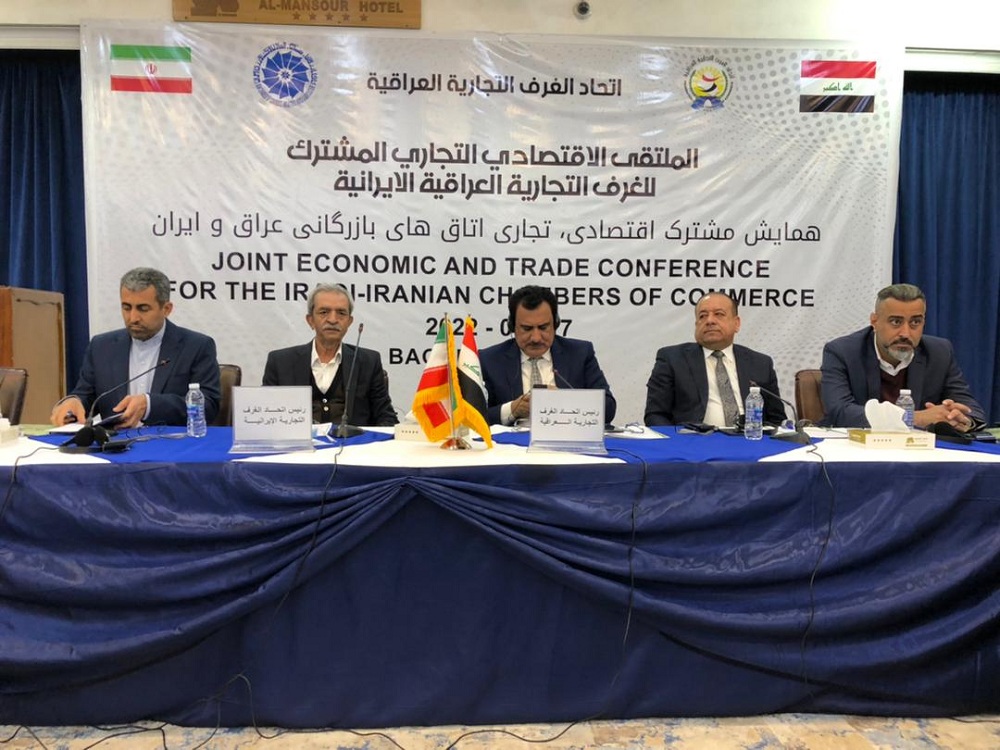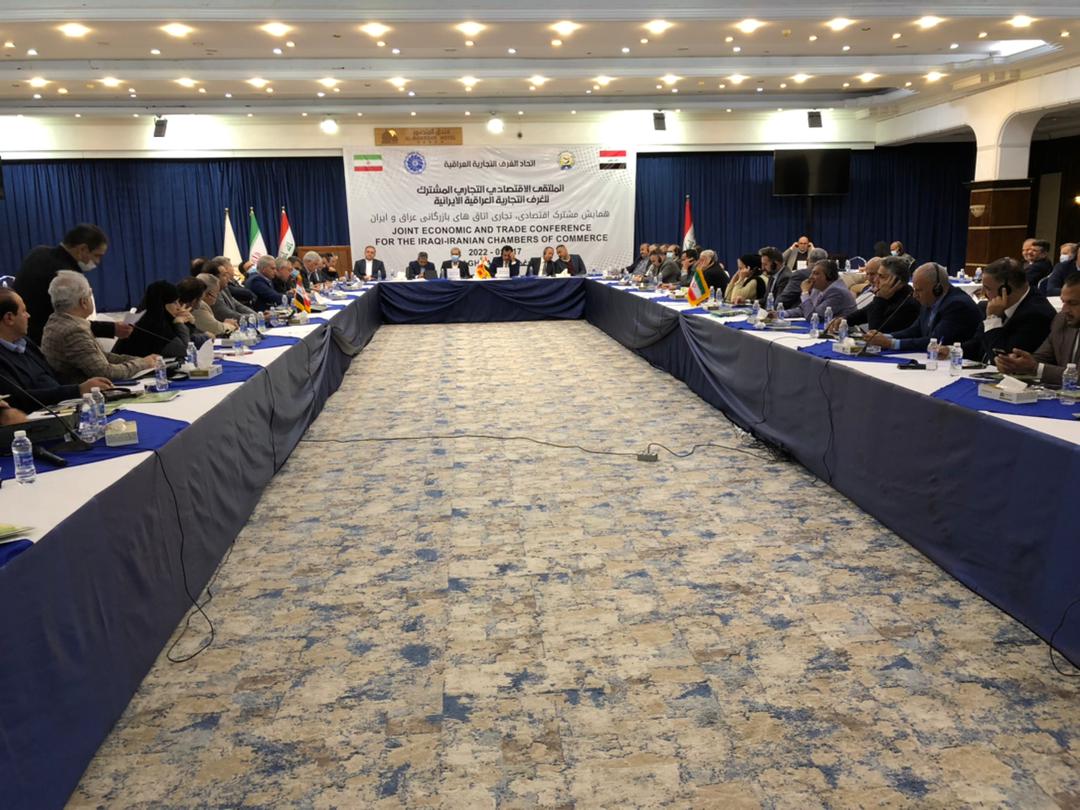The private sectors of Iran and Iraq has signed an agreement on forming a joint arbitration center.
The agreement was signed between President of Iran Chamber of Commerce, Industries, Mines, and Agriculture (ICCIMA) Gholam Hossein Shafei and his Iraqi counterpart Abdul Razzaq al-Zuhairi in Baghdad on Monday.
The two sides signed the agreement during a joint business forum with participation of private sector leaders from both countries.
A high-ranking Iranian private sector delegation led by Iran Chamber chief arrived in Iraq on Sunday.
On the first day of their stay in Iraq, the Iranian delegation paid a visit to Iraq Federation of Industries where Iran Chamber Chief said Iraq is more than a trade partner for Iran. He however noted that the hurdles on the way of economic cooperation between the two countries have to be identified and removed.
Four Members of Parliament, the chairman of Iran-Iraq Joint Chamber of Commerce, and a number of Iranian economic activists are accompanying Shafei in his Iraq visit.
Speaking during the business forum, the head of the Iraqi Federation of Chambers of Commerce said that “the volume of Iraq’s trade is a big sum and we hope that Iran would have a big share of that.”
“We are very happy that we are signing a joint agreement to help reduce the obstacles on the way of cooperation between the two countries," Abdul Razzaq al-Zuhairi said. "The goal is to reduce different problems between economic activists of the two countries by forming an arbitration committee.”

The Iran Chamber chief said for his part that expansion of economic cooperation with neighboring countries top the agenda of Iran Chamber.
Underlining the role of partnership in production and joint investment, Shafei said that a $20 billion target in economic relations between the two countries is not idealistic and the two countries can even reach higher levels.
In the meantime, Mohammad Raza Pourebrahimi, the head of Majlis (Iranian Parliament) Economic Commission, voiced Tehran’s readiness for boosting cooperation and exchange of experiences with Iraq in industry sector.
He proposed forming joint investment companies between the two neighboring countries, however calling on the Iraqi side to remove the existing problems on this way.
Iran can produce goods in Iraq so as to provide the needs of the country and have exports from Iraq to other countries like Syria as well, Pourebrahimi said.

Also speaking during the business forum, Head of Iran-Iraq Joint Chamber of Commerce Yahya Al Eshaq, said that interactions between the two countries have to become more balanced which requires the resolution of some problems including those hindering transit.
He noted that transit problems in Iraq are due to decisions made by Iraqi local officials.
Al Eshaq believed that once these problems are resolved, the level of bilateral trade can increase by another $6 billion.
According to the latest data released by the Islamic Republic of Iran Customs Administration, Iraq with 23.16 million tons worth $6.84 billion was Iran’s second top trade partner in the region after the UAE during the current fiscal year’s first eight months (March 21-Nov. 21).
Iran exported 21.64 million tons of goods worth $6.13 billion to Iraq and imported 1.51 million tons worth $706.86 million from the neighboring country.